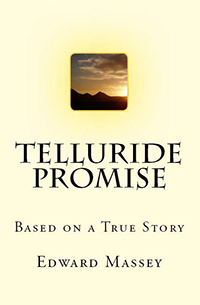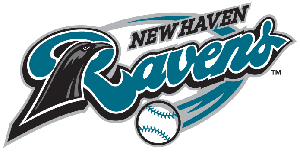Class News
Edward Massey '64 "Heroic Acts of Ordinary People"
Edward Massey '64 was interviewed by Tom Rizzo, storyteller and writer. The interview was published on Rizzo's website on January 13, 2015. It's in the form of 7 questions and answers, listed below after an introductory paragraph.
Edward Massey, who survived most of his life as an entrepreneur, believes individuals are defined by what they do and how they do it.
He applies the same philosophy to the fictional characters he features in his novels. Edward says he decided to write fiction because he “sees heroic acts in the work of ordinary people.”
After publishing two novels, he finished a third, now awaiting publication, and is hard at work on the fourth. His latest novel, Every Soul Is Free, captured the grand prize for Best Novel Published in 2014 by the League of Utah Writers, awarding him the Gold Quill.
Edward Massey makes his home “in an oasis of calm” in Stamford, Connecticut, about fifty miles from New York City, with his wife Anne, a Feng Shui consultant.
“Our house accommodates visitors and we enjoy them,” he said, extending his hospitality to other writers.
1. Your wife once handed you a bound volume of blank pages and told you to put up or shut up and write. How long had you wanted to write and what kept you from it?
In July of 1974, I quit a job with a well-known consulting firm and packed up a truly beautiful apartment on the Rue de Courcelles in Paris and put my wife and two children on a plane to Farmington, N.M. where I bought a house and settled in the garage to write.
Of course, it did not work. I was too afraid of the economic consequences to stick it out. That’s what kept me from writing — but not talking about writing — until that fateful day in August, 2001.
I will note that on that first day with Anne’s book of blank pages and my pen, I had the capacity to put in fifteen minutes. Fortunately, within two months, I got up to two hours a day.
That’s been about my average for the past thirteen plus years (counting off days). Oh, I better mention, in 2007, I did it again. Quit a good job, that is.
2. Every Soul Is Free is your latest novel. What is the overall theme or message in the story?
Thanksgiving Dinner and very important plans to finish a tough-love lesson with his grandson are interrupted for Sheriff Simms in 1948 when the prisoner being transported from his jail across the state line escapes from the state troopers.
The fugitive is the grandson of the woman who saved his mother’s life.
His father treated that woman like what she was, a savior, and taught him to do the same; the boy, her grandson, he raised like a son.
Over the course of twelve hours, Simms leads his four-man posse by truck, by horseback, on foot through snow up 11,000 feet in the High Uintahs to the final confrontation.
The story is an exploration of living the conflict between your calling and your family. Sheriff Simms is a man who believes the best of you and then demands, damn it, that you live up to what he believes of you.
It’s a book about a grandfather, a grandson, a fugitive, and a posse. Men are all front and center and yet everything in the book occurs because of one of four women — invisible unless you pay attention.
Finally, it shows how the tribulations of the pioneer spirit molded relationships, became part of the blood, and flow through us now (counting that I believe the same spirit flows through the veins in 2015 that existed in 1948).
3. In your biography, you mention you started writing because you see “heroic acts in the work of ordinary people.” Elaborate on that a bit.
Some men have callings. Some men have work. And most men turn their work into their calling.
In all three instances, the decision of what to do — to work more or work less; to make more or make less; to cheat or not to cheat, and you can run this list out in very great detail — requires an act of courage by an ordinary person.
I know we need sex, gunsmoke, and horseshit — and since The French Connection, car chases — but I am eternally much more interested in the banker’s decision to protect his depositors in my novel, Telluride Promise, at the expense of his career, or in Sheriff Simms’s inevitable pursuit of a boy who could have been his son.
And they aren’t all Westerns. In my third novel (currently submitting to publishers) a plumber is trying to create a better life for his family but he finds he can only do that at the expense of the life with his family.
4. You worked as an entrepreneur most of your life. What kind of work did you do and how were those skills helpful in writing fiction?

I have had many ups and downs and if I had simply stuck with writing I think I would be in the same place, except 15 novels.
A brief list of the ups: built apartments and office buildings in New Mexico, created Taco Box, a Mexican fast food chain, created a single family office for one of the historically significant American families.
I also founded a health-care consulting company, created a partnership that discovered Blondie (that was a ride), became a partner in a major venture-capital firm, bought five little nursing agencies and rolled them into a public company.
I won the expansion franchise for Double A baseball in 1992 and started play as the affiliate of the Colorado Rockies in 1994, created another single family office, this time for a major American entrepreneur. Quit again.
Needless to say, each one of these ups came after and maybe as a result of the preceding down.
I certainly learned to suffer from the downs, but the valuable lesson that I learned was to protect and respect your momentum — the theme of my EnterpreneurOnFire podcast.
5. You’ve written three novels and several short stories. Talk to us about your approach to storytelling. How structured or unstructured is it?
In the past, I have been a master at outlining. I developed a method using three different forms of outlines. Some days I fantasize that I could teach a course on outlining.
That challenging wife I mentioned also interceded in this. This time she challenged me to sit down and write the story. I’m two-thirds of the way through.
The only way I know I am two-thirds of the way through is this morning when I finished writing, I decided I had finished part two. The real question I now have (question = fear) is what do I do when I start work on the second draft?
6. As a consultant, and entrepreneur, you’ve had your share of marketing challenges. What are the top three strategies — or tactics — you find most effective in marketing fiction?
Tom, I come to you with education and experience that should count for a leg up and I don’t know what the hell to do.
That is the reason for my first-Monday-of-the-month Western Fictioneers blog. I hope to work this out and along the way discover what I can do and maybe help others sort out what they can do.
I will mention something based on the very first blog on WF. In work, there is a “production function.” All it means is if you do something you get a result. For example, if you write 500 words a day, you get a novel. So, just that one blog led to four comments, one exchange of e-mails, and this opportunity.
I didn’t have any expectations. All I can say is we are all trying to find the things to do in marketing that have the highest possible production function.
7. You once owned a minor-league baseball team on the East coast called the New Haven Ravens. Tell us a little about that, and whether you’re involved in baseball in any way now.

After ten years, I sold the team and it is now the very successful Manchester Fisher Cats.
When I sold it, I thought that was OK. Now that I have been away from the sale for 12 years, well, I’d rather write and publish all the novels I have in mind, but I need to acknowledge that there are few times one can be involved in the very fabric of American Life.
There are only 30 Double A franchises in the country. They are, in fact, monopolies. My city didn’t respect that and I let the team go to another city that did.
I should have shown my backside to the city and kept the team. We sent 66 kids to the majors, won the Eastern League Championship, had player development affiliations with the Colorado Rockies, the Seattle Mariners, the St. Louis Cardinals — with whom we won the championship — and the Toronto Blue Jays.

